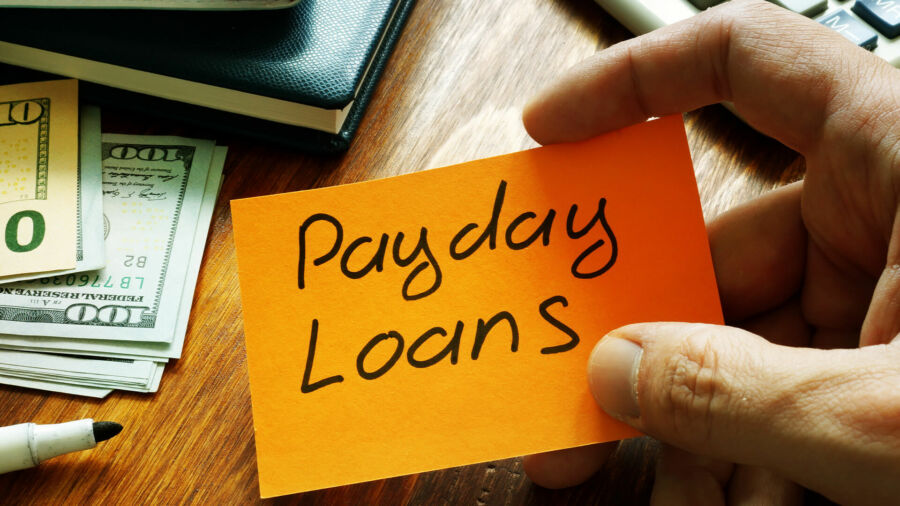Thinking about getting a loan to help finance something? Loans are a fundamental part of the modern economy, and most people take out multiple loans during their life. Here are ten common types of loans and how you can qualify for them. While the text below mainly discusses banks, most loan types are also available from credit unions, which may have different rates or repayment plans.
It’s usually worth checking several places before you get a loan.
Managing loans
Managing loans is complex and may involve using different pieces of software. This fact can more easily lead to human errors and reduce productivity.
Loan servicing software can help by enabling all data to be stored in one place. It can also automatically retrieve funds from the borrower’s account and make loan calculations, among other features.
1. Personal loan
Personal loans are loans you can apply to almost anything you want to spend money on, from home improvements to vacation costs. Most of these are unsecured (meaning they don’t require collateral) but have repayment terms that depend on how much you’re borrowing.
It’s relatively easy to get a personal loan from a bank as long as you have the income to repay them.
Personal loans don’t have to be expensive. Most people borrow less than $10,000 this way, and many don’t even reach $5000. Personal loans are a good choice if you need a chunk of cash up-front and don’t have the time to save it up.
2. Auto loans

As the name suggests, auto loans are specifically for helping finance vehicle purchases. Most auto loans equal the price of the car, minus any down payment you decide to make. Banks are usually flexible with these loans and offer better rates for borrowers with good credit scores or large down payments.
The vehicle itself serves as collateral for an auto loan. If you don’t repay it, the bank may repossess the car. However, since the vehicle is collateral, auto loans are comparatively easy to qualify. Loan durations can vary, but up to 72 months is standard.
3. Mortgage loans

Mortgage loans are for buying homes. They’re fundamentally similar to auto loans but for significantly more significant amounts, and banks can foreclose on properties that miss payments. Interest rates can vary, with fixed and variable rates available.
Qualifying for a mortgage usually requires a high credit score, a sufficient down payment, and proof of sufficient income. Many lenders also want a good debt-to-income ratio and comfortable cash reserves before they offer a mortgage.
Also read: Loan 101: 4 Different Types of Loans for Individuals
4. Home equity line of credit
Also known as a HELOC, a home equity line of credit allows you to borrow against the value of your house, gaining a single lump sum and a plan to repay it over time. Repayment plans can vary from five to thirty years but usually have a significant jump in interest rates past a certain point to discourage waiting to repay.
Qualifying for a HELOC usually requires enough equity in real estate (15% minimum, 20% preferred, 100% is best of all), a decent credit score, and a good debt-to-income ratio. Most homeowners easily qualify for these. They’re often a good choice for unemployed workers, too.
5. Credit-builder loan
Credit builder loans are for people who don’t have any credit yet, such as adults who never ended up borrowing when younger. They may also be available to those with poor credit. Once set up, you make monthly payments towards the amount (usually $1000 or less) and get the money back at the end of the loan.
Banks usually limit these to people who need help building their credit, so they’re not available to anyone in a better position.
6. Payday loans

Payday loans are short-term, high-interest loans, usually for small amounts. They’re easy to get but can be hard to repay, giving them more pros and cons than other types of loans. However, payday loans are best for emergencies only, and even then, only if you can ensure full repayment.
Consider applying for a personal loan if you need an extended repayment period. Most banks are willing to be flexible for small loans.
Also read: 5 Best Startup Business Credit Cards with No Credit
7. Debt consolidation loan
Debt consolidation loans gather several other loans and pay them all off at once, giving you a single remaining loan to focus on. These have several advantages, including simplifying repayments and making it easier to get away from high-interest loans.
It’s relatively easy to qualify for these if you already have loans and are reliably paying those off because banks have clear proof that you can pay.
8. Pawn loans

Pawn loans allow you to take an item into a store and receive a set amount of its estimated value, usually between 20% and 60%. The shop holds the item, and if you don’t repay the cost plus interest, they can sell the item to get the money back.
Pawning items is relatively easy because you’re working with an existing item, and most pawn shops are happy to offer a loan for almost anything they think will sell well. They don’t have the same security as banks, but they’re also more flexible about what they’re willing to take as collateral.
Everyday items to pawn include guns, antiques, tools, and electronics.
9. Student loans
Student loans are available to help pay for college and graduate education. These are available from private lenders and the federal government at different rates. The government considers them financial aid, so they usually don’t require a credit check, and most people heading into college won’t have much of a credit score to start with.
However, some student loans have aggressive interest rates that make them hard to pay off, so it’s essential to run the numbers carefully before accepting them.
10. Family loans

Finally, there are family loans. Rather than going through a company, family loans come from relatives, friends, or anyone else willing to part with some cash for a time. Private lenders may be far more flexible about repayment schedules, but unless they’re independently wealthy, they may only be able to offer comparatively small amounts.
Final thoughts
These are only a few of the many loan types you have access to. Loans are available for almost any reason, but since rates and repayment times vary, check your options before you borrow. This will help ensure you get the best rate.
Also read: 7 Websites for Private Student Loans
























































